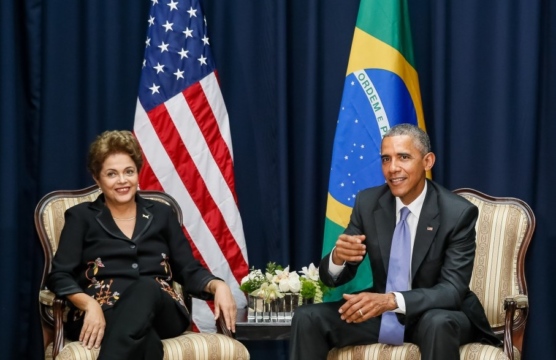
The Future of US-Brazil Relations
Can the US and Brazil rise above their differences and find reasons to cooperate more effectively?
Dialogue members Susana Malcorra, dean of the IE School of Global & Public Affairs, and Rebeca Grynspan, secretary general of SEGIB, are participating in a thought leadership series titled "Women's Voices for an Equal Future."
The series is organized by the United Nations System Staff College (UNSSC) and the Group of Women Leaders Voices for Change and Inclusion (GWL-Voices). Through this platform, UNSSC and GWL-Voices aim to "give greater visibility to a diverse group of women leaders who are using their voices to spearhead public discourse and address global challenges. We believe in full gender equality and the empowerment of women across all segments of society, and invite current and aspiring activists to join a movement to amplify."
In her article, Malcorra addressed various leadership challenges in a Covid-19 environment. She stated that "the global pandemic is disrupting life for women across the globe. There needs to be a harmonized response by world leaders." Grynspan discussed women's economic empowerment, stressing that "we need to focus on the gender gap in Latin America and address women’s economic empowerment in order to spur recovery from the COVID-19 crisis."
Susana Malcorra and Rebeca Grynspan are Members of the Inter-American Dialogue. Malcorra sits on the Dialogue’s Board of Directors.
Can the US and Brazil rise above their differences and find reasons to cooperate more effectively?
How useful are the MDG’s broad targets as measurements of progress in the region?
With regional growth expected to be relatively low this year, will efforts at poverty reduction remain stalled?
 Credit: United Nations System Staff College
Credit: United Nations System Staff College

